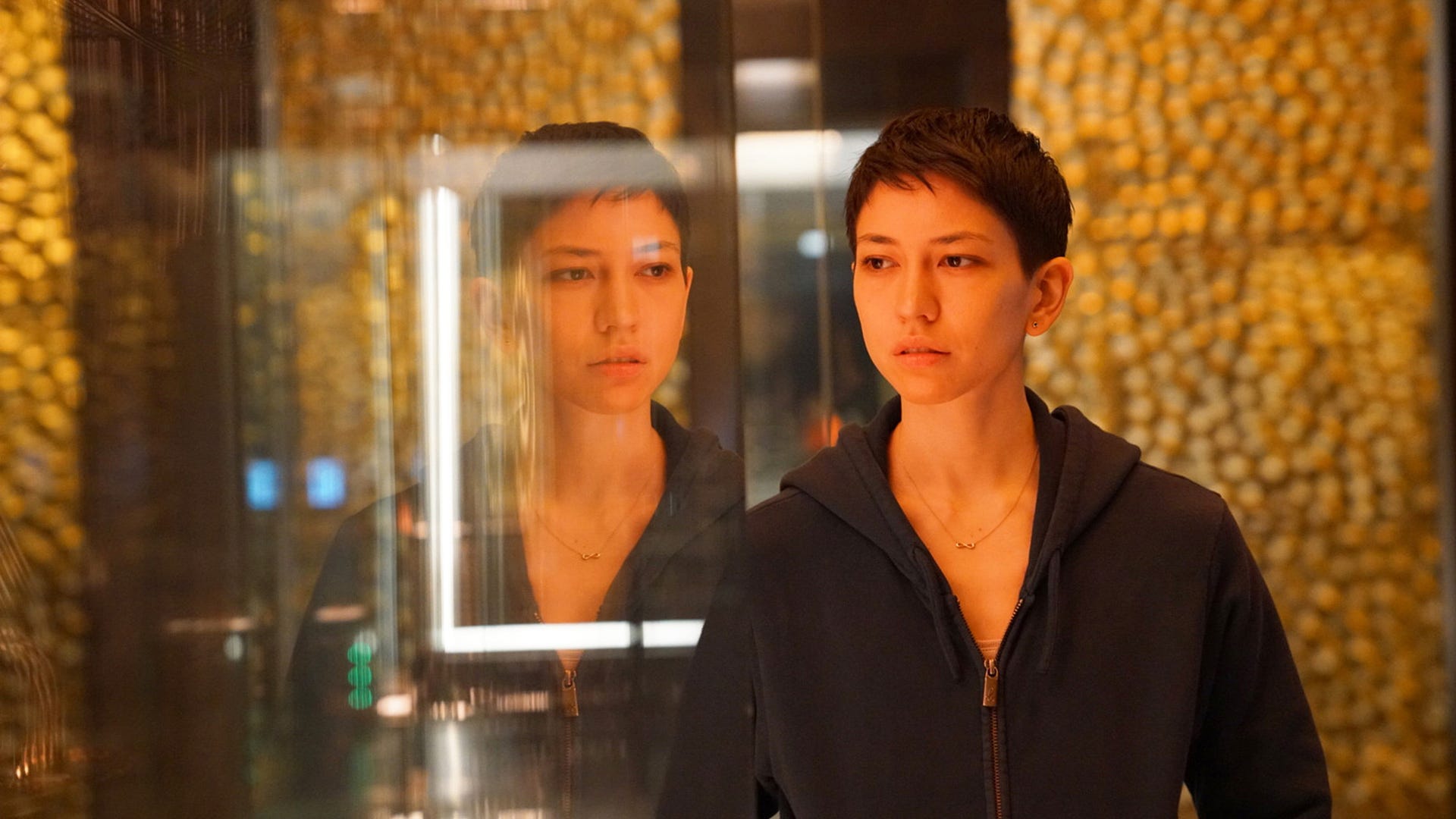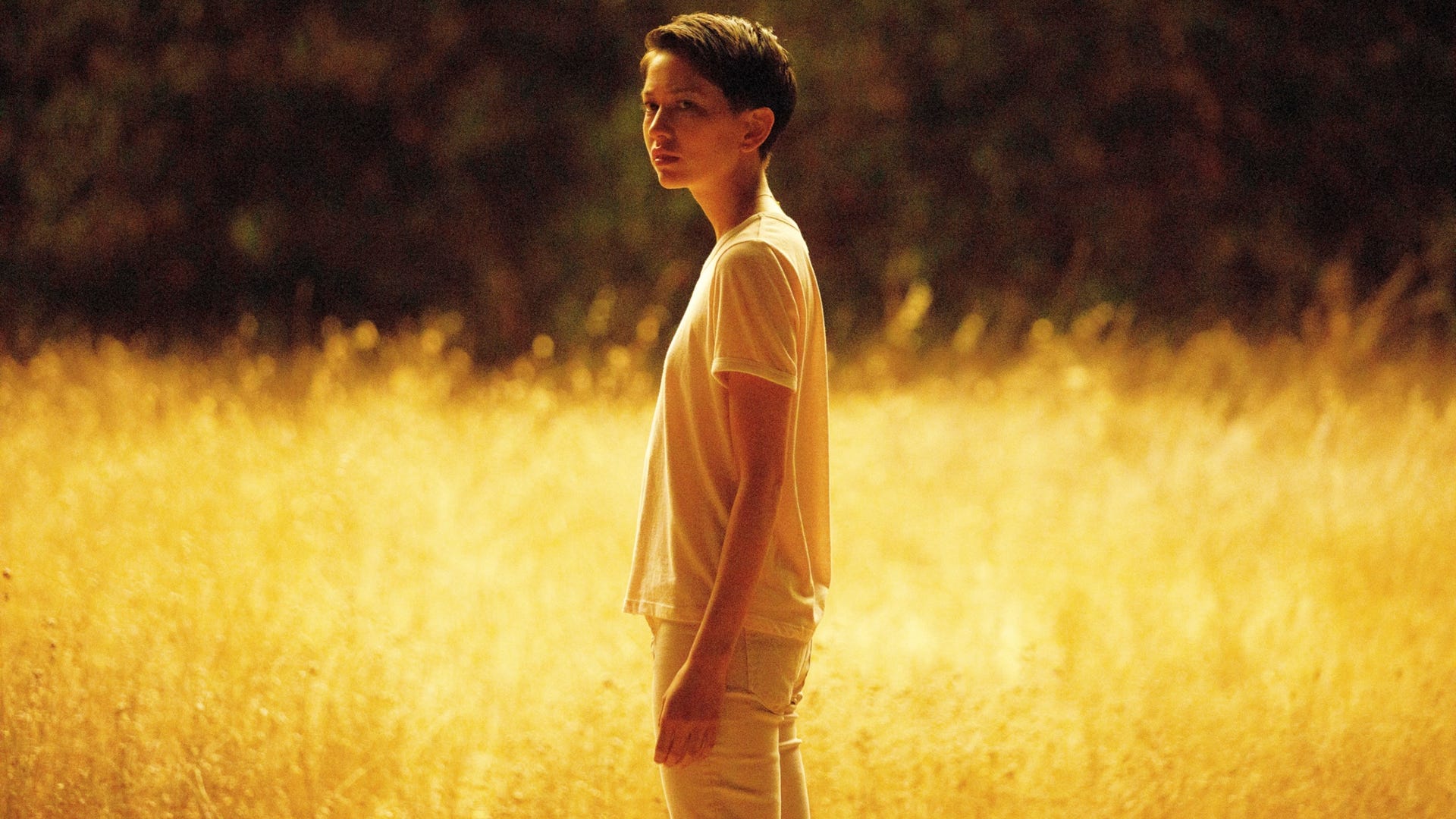Join or Sign In
Sign in to customize your TV listings
By joining TV Guide, you agree to our Terms of Use and acknowledge the data practices in our Privacy Policy.
Devs Creator Alex Garland Insists That Ominous Finale Was a 'Happy Ending'
In the end, it's all about love
[Warning: The following contains spoilers for the season finale of Devs. Read at your own risk!]
The final episode of Devsopens with an alarming recitation. Stewart (Stephen McKinley Henderson), the show's resident voice of conscience and prescience, reads a few passages from W.B. Yeats' apocalyptic poem "The Second Coming," which foretells the birth of the beast, rather than the second coming of the messiah, to bring an end to mankind.
As Forest's (Nick Offerman) eyes appear to take in the fruits of his labor and loss in the opening, Yeats' line about how "the worst are full of passionate intensity" lands with a chill. The message appears to be: what this division has just created is the stuff of end times, even if it was meant to be a source of salvation. However, the series doesn't exactly go out on a note of doom and gloom. In fact, that ominous frame of Forest turns out to be something entirely different than we might've expected at the outset. But is it a happy ending? Well, that's debatable.
The action begins with Lily Chan (Sonoya Mizuno) making her inevitable trip to Devs HQ to have a word with Forest about all the hell he has wrought in her life, but he is well prepared for her visit, her every word, and, yes, even the moment when she pulls a gun from her jacket. Upon request, he shows Lily their immediate future, which features Lily shooting him down in the electromagnetic elevator and accidentally ending her own life in the process. Forest knows they are both doomed, and he also knows they are powerless to stop it.
The wheels begin setting into motion, with Lily newly incensed at Forest for revealing that the true name of Devs is actually Deus, a wink to that messiah complex tech giants are fabled to have. They board the elevator and carry out the same conversation they'd seen, but then Lily makes the unexpected decision to throw the gun away instead of going through the motions. It is that singular choice which has long scrambled Devs' supercomputer from predicting anything beyond that point in time. She has broken the chain of expected events -- except for the fact that they all knew she would do something to achieve just that.

Sonoya Mizuno as Lily Chan, Devs
Miya Mizuno/FXThey are left flying blind by Lily's move, so neither of them know that Stewart will still disable the elevator's magnetics and leave them both to plummet to their death, all the while insisting that his decision is noble. This is his way of stopping what Devs has. Even if it's harsh, he didn't actually make the choice to do it anyway. Forest and Lily also don't know that Katie (Alison Pill) will ultimately put them both into the system to live through the many simulated versions of their lives via "Lyndon's Principle," which is essentially an actualized model of the many worlds theory.
Devs Review: Alex Garland's First TV Show Is a Dazzling Take on Determinism
Though Forest and Lily will experience good and bad lifetimes in untold measure, the particular simulation they find themselves here is a hopeful one; in this plane of existence, Forest's family is still alive, and both Sergei (Karl Glusman) and Jamie (Jin Ha) are back, too. Only Forest and Lily will know the truth of their reality -- that it is a computerized construct and that everyone in it is a mechanized version of themselves -- but, as Forest blithely contends, that is no different than "real life." If life is already pre-written, and we are all merely observers of those mathematical certainties, then living as a simulation is the exact same experience. Now, all that is left for them to do is to enjoy the time they have with the ones that they love, whether that love is based on free will or not.
Alex Garland -- whose fascination with the problem of evil, particularly as it pertains to determinism, inspired the series -- contends that Forest and Lily's ability to experience love in any form is what makes this a cheery conclusion.
"Is it a happy ending? For me it is," he told TV Guide at this winter's Television Critics Association. "It's not just the free will aspect. It's not that. It's actually about love. In this very, very strange world, the underlying physics give rise to complicated philosophical problems. But we have to live in it, and there's a huge dissonance often between the way we intuitively think the world runs or the way in which we are overtly told that the world runs, in comparison to how it really runs. And we bump up against these things a lot, and it's difficult, and it's disturbing, and it unsettles people...Through it all, what we end up with is love... It's love of friendships and romance and parenthood, in the midst of all these incredibly complicated and sometimes disturbing things, that is what we end up being."
Here's Why Alex Garland Turned to TV to Tell the Story of Devs
For Garland, it doesn't matter that free will is a construct, or that the characters are left to live in virtual simulations of reality, because "whether we know we have free will or not, whether it's an illusion or not, we still care."

Nick Offerman, Devs
Raymond Liu/FXMizuno, meanwhile, is willing to agree that it's a "paradox" as to whether Lily actually makes a choice to be with Jamie in the end, but she also regards this as a hopeful ending for her character.
"To me, in that world, it's a happy ending because she ends up with Jamie," she explained. Despite all the complications of this story, Mizuno finds that there is something simplistic about what Lily experiences throughout Devs, at least on an emotional level. "People always talk about becoming an adult when you're 18, but you actually really become an adult in your late 20s and your early 30s. Your idea of life changes, and what you want from a relationship changes. So, that's the journey I feel Lily is going on. She realizes that who she really truly loves on a deep level is Jamie. And she ends up with Jamie."
The fact that the climax of the series hinges on Lily exercising free will in a way no one thought she was capable of does call back that moment in Garland's first film Ex Machina, when Mizuno's character Kyoko revealed herself to be unexpectedly sentient and self-possessed. However, the more likely comparison that will be earned from Devs' conclusion is to that of Black Mirror's "San Junipero."
That episode also featured characters embracing a simulated afterlife in the name of love and ultimately existing at the mercy of a mainframe (and, hopefully, plenty of backup batteries). But as with that beloved episode, there's a dark truth to it all that we have to ignore to see it as a happy ending. With "San Junipero," we must overlook one character's sacrifice in never reuniting to her late husband and child, no matter how slim the possibility of a celestial afterlife may have been to her. And with Devs, Forest and Lily must go on knowing that their entire reality is a machination and that nothing they do is of their own volition. More importantly, they're facing other worlds which are decidedly less idyllic than this one, and who knows how bad it will get in each of them.
So, for audiences at home, it's a matter of choice (groan) as to whether to interpret this as a happy ending, but we can probably all agree that Alex Garland needs to be given the free will (double groan) to keep making thoughtful TV shows like this one.
Devs is available to stream on FX on Hulu.

Sonoya Mizuno, Devs
Raymond Liu/FX